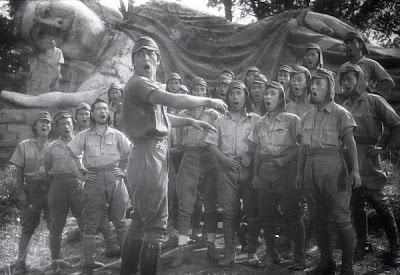Film:
Deseret
Format: Video from The Magic Flashdrive on laptop.
Of all the rare films that exist on The List, none is more rare than
Deseret. There were a number of films that, as I started looking around, I had trouble finding, but none were more frustrating than this odd little film from James Benning. To my knowledge, this film has not only never gotten a DVD release, it’s never been put on videotape. There is a mythical copy of the film on 16-milimeter film somewhere in California, one that requires a massive deposit to rent, which doesn’t include the cost of the projector itself. I am, thus, massively grateful to Chip Lary at
Tips from Chip for forwarding me this electronic copy.
Deseret is an odd film, one that is difficult to parse. On its surface, it’s a simple film—little more than a series of landscapes and a voiceover narration that seems to have little or nothing specific to do with the words being spoken. As it turns out, the words being spoken are excerpted passages from nearly 100 news stories printed in the New York Times over a span of just shy of 150 years. Each story is pieced down into a few sentences. Benning presents us with a static camera, switching shots for each sentence, and giving us a long pause on a shot between stories. Each of the stories is introduced with the individual story’s initial date of publication.




























